Journey to Parenthood
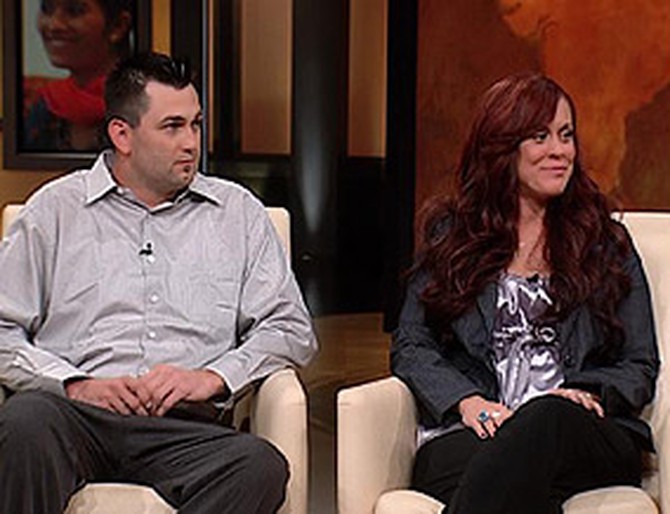
In their quest to have a baby, many couples struggle through years of expensive medical treatments and emotional setbacks. Oprah Show correspondent Lisa Ling investigates a new option that some parents are trying—and it takes them farther from home than they ever imagined.
When Jennifer and Kendall married five years ago they couldn't wait to have a baby. "We've both come from big families," Jennifer says. "We always imagined having a family and being parents." For three years, they struggled with infertility, even attempting in vitro fertilization. "We've probably spent about $25,000 or $30,000," Jennifer says. "It was basically everything we had saved up."
Despite all their efforts, Jennifer could not conceive. "I think so many of us are taught as kids by our parents that you can do anything you set your mind to," Jennifer says. "Fertility is completely different. You're finally thrown into this world of, 'I cannot do this. No matter how hard I try, I cannot accomplish this.' So it's probably the worst kind of failure."
When Jennifer and Kendall married five years ago they couldn't wait to have a baby. "We've both come from big families," Jennifer says. "We always imagined having a family and being parents." For three years, they struggled with infertility, even attempting in vitro fertilization. "We've probably spent about $25,000 or $30,000," Jennifer says. "It was basically everything we had saved up."
Despite all their efforts, Jennifer could not conceive. "I think so many of us are taught as kids by our parents that you can do anything you set your mind to," Jennifer says. "Fertility is completely different. You're finally thrown into this world of, 'I cannot do this. No matter how hard I try, I cannot accomplish this.' So it's probably the worst kind of failure."
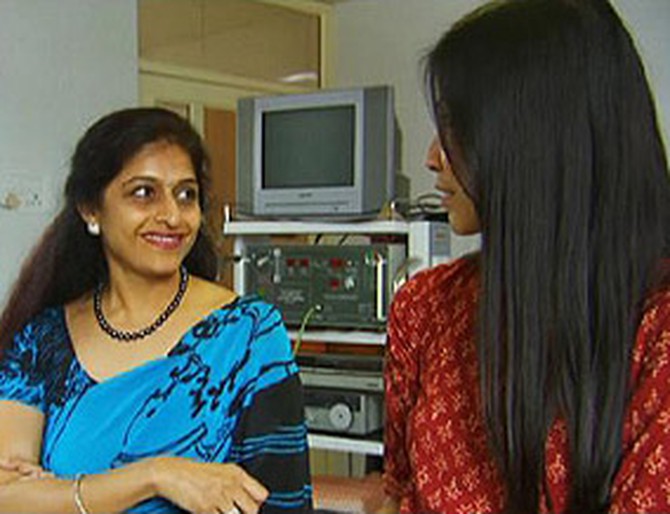
After years of frustration, Jennifer and Kendall came to the realization that they would have to consider other options. "We were looking into surrogacy in the United States but we just couldn't afford to do it," Jennifer says. Just when they thought all hope was lost, they came across an article online that opened up another world of possibility.
At the Akanksha Infertility and IVF Clinic in Anand, India, couples from as far away as Germany, Canada and the United States can hire surrogates for a fraction of the cost as in the United States. Clinic director Dr. Nayna Patel says their success rate in 2006 was a very high 44 percent—which gives new hope for couples struggling to start a family.
Dr. Patel says couples in her program—the waiting list is 250 to 300 couples long— fly to India to get the process underway. First, the medical team extracts eggs from the mother. Then, using sperm from the father, Dr. Patel and her staff create embryos which they implant into the surrogate.
After implantation, the surrogate mother remains at the clinic for 15 days so the staff can monitor her progress and determine if she becomes pregnant.
At the Akanksha Infertility and IVF Clinic in Anand, India, couples from as far away as Germany, Canada and the United States can hire surrogates for a fraction of the cost as in the United States. Clinic director Dr. Nayna Patel says their success rate in 2006 was a very high 44 percent—which gives new hope for couples struggling to start a family.
Dr. Patel says couples in her program—the waiting list is 250 to 300 couples long— fly to India to get the process underway. First, the medical team extracts eggs from the mother. Then, using sperm from the father, Dr. Patel and her staff create embryos which they implant into the surrogate.
After implantation, the surrogate mother remains at the clinic for 15 days so the staff can monitor her progress and determine if she becomes pregnant.
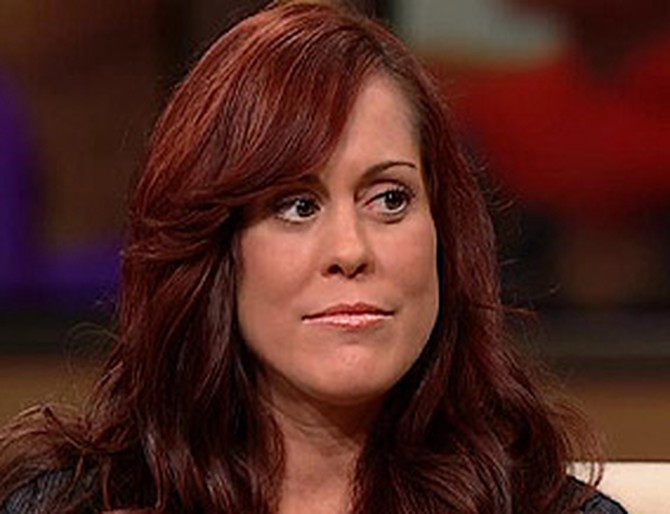
Inspired by the story, Jennifer and Kendall decided to travel to India. "The culture shock at first was just so much, so that the first few days were really hard for me," Jennifer says. "I definitely had a lot of those moments where you just kind of step out of yourself and look at your surroundings and just think, 'How did I get here?'"
When they arrived at the clinic, Jennifer and Kendall met Dr. Patel and Sangita, an Indian woman who agreed to carry their baby. For three weeks, the couple lived in an Anand hotel as Jennifer underwent surgeries to remove her eggs. Every other day, Kendall took a sample of his sperm at the hotel, jumped in a rickshaw and delivered it to the clinic. "You get used to giving up all dignity," Jennifer says. "[You] just kind of do whatever you've got to do."
Once their procedures were completed, the couple made the arduous 25-hour journey back home...and the waiting began.
When they arrived at the clinic, Jennifer and Kendall met Dr. Patel and Sangita, an Indian woman who agreed to carry their baby. For three weeks, the couple lived in an Anand hotel as Jennifer underwent surgeries to remove her eggs. Every other day, Kendall took a sample of his sperm at the hotel, jumped in a rickshaw and delivered it to the clinic. "You get used to giving up all dignity," Jennifer says. "[You] just kind of do whatever you've got to do."
Once their procedures were completed, the couple made the arduous 25-hour journey back home...and the waiting began.
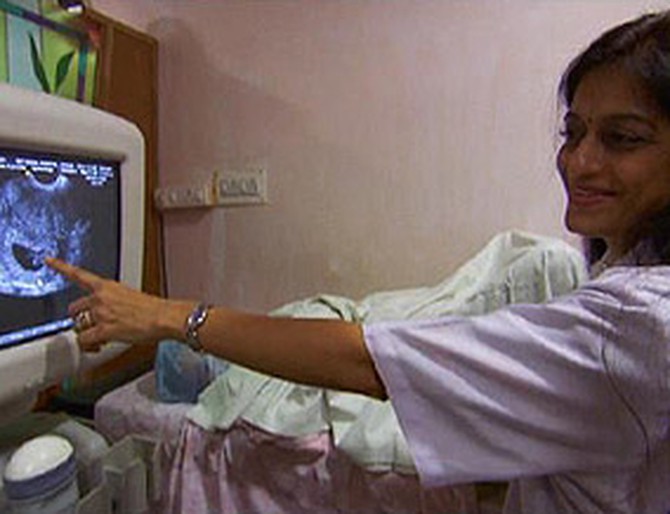
After years of waiting and a 10,000-mile journey, Jennifer and Kendall anxiously awaited word. Finally, an e-mail arrived. "We saw the word congratulations," Jennifer says. "We've been waiting a long time for that word." The couple was overjoyed. "We basically collapsed in each other's arms. It was pretty amazing," Kendall says.
Two months later, Lisa Ling travels with Jennifer to India so she can be present for the first ultrasound. "I just feel in awe," she says. "I waited a long time for this, so it's really exciting."
Dr. Patel has another treat for Jennifer—she gets to hear the baby's heartbeat! "It's a miracle...I'm just thanking God and I'm excited and I wish my husband could be here to hear it," Jennifer says. To make sure Kendall can participate in the joyous moment, Lisa lends Jennifer a cell phone so he can hear his baby's heartbeat, too!
Jennifer says the experience is surreal. "[I feel] so thankful."
Two months later, Lisa Ling travels with Jennifer to India so she can be present for the first ultrasound. "I just feel in awe," she says. "I waited a long time for this, so it's really exciting."
Dr. Patel has another treat for Jennifer—she gets to hear the baby's heartbeat! "It's a miracle...I'm just thanking God and I'm excited and I wish my husband could be here to hear it," Jennifer says. To make sure Kendall can participate in the joyous moment, Lisa lends Jennifer a cell phone so he can hear his baby's heartbeat, too!
Jennifer says the experience is surreal. "[I feel] so thankful."
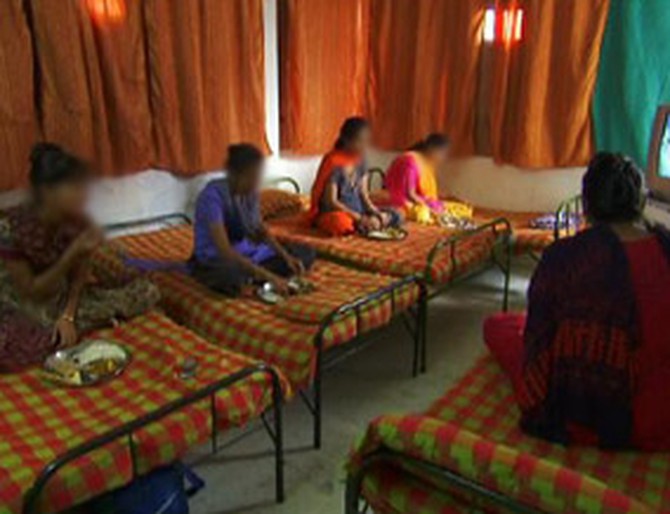
As life-changing as the experience is for new parents, it is equally life-changing for surrogate mothers in India. According to Dr. Patel, each woman receives a payment of approximately $5,000—which is equivalent to almost 10 years' salary. Lisa says the money has allowed some families to move to nice family homes and to provide a good education for their children.
To be eligible for Dr. Patel's program, women must meet certain criteria, such as being younger than 45 years old. "Two out of 10 is the average where we have to refuse [potential surrogates]. [We tell them], 'You are not fit. You are overage. And I don't think you can carry the pregnancy and delivery in a proper way,'" she says.
Another prerequisite is that all surrogates must already have their own child. "She wants to try and ensure that the surrogates don't develop any kind of emotional attachment," Lisa says.
Being a surrogate has drawbacks, too, Lisa says. "There's still a pretty big stigma attached to surrogacy in India. Especially in the villages, they don't really understand the science behind it, so sometimes they think the woman got impregnated by another man," Lisa says. "There's so many sorts of rumors about it."
To be eligible for Dr. Patel's program, women must meet certain criteria, such as being younger than 45 years old. "Two out of 10 is the average where we have to refuse [potential surrogates]. [We tell them], 'You are not fit. You are overage. And I don't think you can carry the pregnancy and delivery in a proper way,'" she says.
Another prerequisite is that all surrogates must already have their own child. "She wants to try and ensure that the surrogates don't develop any kind of emotional attachment," Lisa says.
Being a surrogate has drawbacks, too, Lisa says. "There's still a pretty big stigma attached to surrogacy in India. Especially in the villages, they don't really understand the science behind it, so sometimes they think the woman got impregnated by another man," Lisa says. "There's so many sorts of rumors about it."
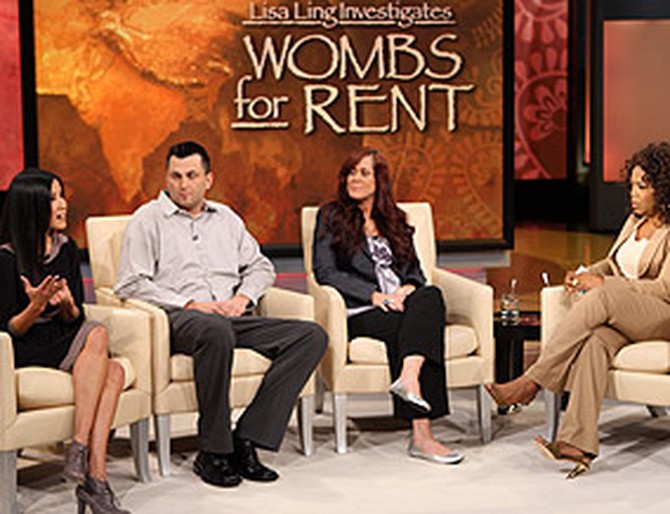
Couples like Jennifer and Kendall travel to India because the cost of a surrogate pregnancy there is much cheaper than in the United States. At the clinic in Anand, having a baby with a surrogate costs roughly $12,000—instead of up to about $80,000 in America.
Because surrogate mothers in India make so much less money than those in the United States, some worry these women are being exploited. According to Lisa, this is absolutely not the case. "This is so transformative," Lisa says. "So many people from Europe and other countries come to the United States, but it's so expensive. No one says that American women are being exploited when they become surrogates."
To those who worry about exploitation, Jennifer says someone who hasn't been in her situation should not judge. "You have not walked in my shoes as someone who cannot have a child," she says. "And you don't know how it feels to not be able to pay for your children to go to school, to not be able to ... take care of your family. You don't know how that feels. And we were able to come together, [Sangita] and I, and give each other a life that neither of us could achieve on our own. And I just don't see what's wrong with that."
Because surrogate mothers in India make so much less money than those in the United States, some worry these women are being exploited. According to Lisa, this is absolutely not the case. "This is so transformative," Lisa says. "So many people from Europe and other countries come to the United States, but it's so expensive. No one says that American women are being exploited when they become surrogates."
To those who worry about exploitation, Jennifer says someone who hasn't been in her situation should not judge. "You have not walked in my shoes as someone who cannot have a child," she says. "And you don't know how it feels to not be able to pay for your children to go to school, to not be able to ... take care of your family. You don't know how that feels. And we were able to come together, [Sangita] and I, and give each other a life that neither of us could achieve on our own. And I just don't see what's wrong with that."
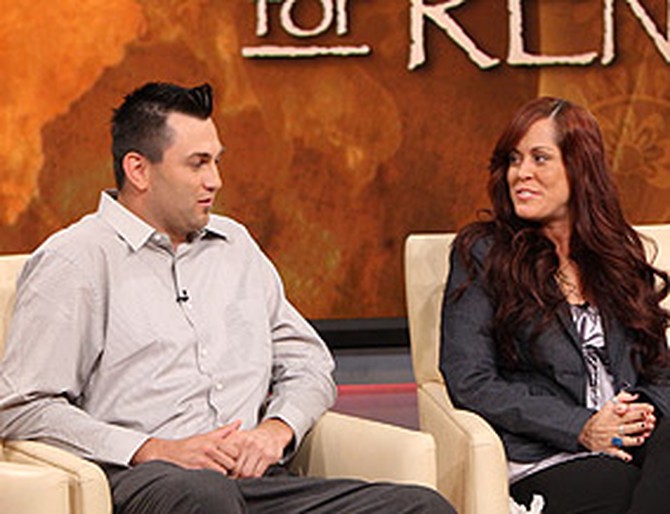
As they prepare for the life-altering experience of parenthood, Jennifer and Kendall say their ordeal has already made a difference in their lives. "Obviously, the infertility changes you," she says. "But this experience, doing the surrogacy, going to India and forming that bond with these people halfway around the world—it's definitely changed both of us."
A few weeks before their baby is born, Jennifer and Kendall will travel back to India so they can be present at the birth.
"The time we got to spend together there, through the culture shock initially and through all the stuff, has definitely brought us together, and just helped us out immensely," Kendall says.
In addition to its obvious impact for everyone involved, Lisa says this arrangement has even broader implications. "Now this baby and this couple will have this bond with this country. And in a way, become these sort of ambassadors, these cultural ambassadors," she says. "It's confirmation of how close our countries can really be."
A few weeks before their baby is born, Jennifer and Kendall will travel back to India so they can be present at the birth.
"The time we got to spend together there, through the culture shock initially and through all the stuff, has definitely brought us together, and just helped us out immensely," Kendall says.
In addition to its obvious impact for everyone involved, Lisa says this arrangement has even broader implications. "Now this baby and this couple will have this bond with this country. And in a way, become these sort of ambassadors, these cultural ambassadors," she says. "It's confirmation of how close our countries can really be."

Alexis Stewart is 42, single...and just happens to be business mogul Martha Stewart's daughter. Like millions of women around the world, Alexis desperately wants a child of her own. Unlike most women, she spends up to about $28,000 a month trying to make her dream a reality.
For the past year, Alexis has been seeing fertility doctors and trying cutting-edge procedures to get pregnant. She says she's known for years that she wanted to be a mother...but life got in the way. "I was around 36 [when I decided I wanted a baby]. ... It wasn't a good time. I forgot about it," she says. "Then about two years ago, I started to think about it again."
With medical miracles happening all the time, Alexis says she always thought she could wait to conceive. Now that she's ready to be a mom, she says it's almost too late.
"[We] get distracted because now we have jobs, and now we have other things to do. Medicine seems miraculous—you can do anything you want," she says. "Movie stars have babies late. It seems all possible, but you don't hear the stories of the people who can't have a baby."
For the past year, Alexis has been seeing fertility doctors and trying cutting-edge procedures to get pregnant. She says she's known for years that she wanted to be a mother...but life got in the way. "I was around 36 [when I decided I wanted a baby]. ... It wasn't a good time. I forgot about it," she says. "Then about two years ago, I started to think about it again."
With medical miracles happening all the time, Alexis says she always thought she could wait to conceive. Now that she's ready to be a mom, she says it's almost too late.
"[We] get distracted because now we have jobs, and now we have other things to do. Medicine seems miraculous—you can do anything you want," she says. "Movie stars have babies late. It seems all possible, but you don't hear the stories of the people who can't have a baby."

Now that Alexis is in her 40s, she says getting pregnant is difficult because her eggs are "dry and crusty." To increase the number of eggs her body produces, Alexis says she takes an arsenal of drugs each month.
Her medical routine begins every month on the day after she gets her period. "I go to the doctor and test my blood," she says. "They do an ultrasound. They look at my ovaries to make sure there are no cysts. They check the lining of my uterus, and then that night, I begin my medication."
Every evening, Alexis says she gives herself two injections of fertility drugs. "Then, on about the 11th day, the doctor will say, 'You're ready. In two days we're going to harvest your eggs,'" she says.
Doctors have tried the ICSI—intracytoplasmic sperm injection—method with some of Alexis's viable eggs and sperm she got from a sperm bank. "ICSI is where they take the egg and they poke a hole in it," she says. "They put the sperm in—they don't just wait for it to fertilize, because your egg is hard and old and crusty. It doesn't want to make a baby."
Alexis says she's had three egg implantations, but none of them have stuck. "Last month, I had no eggs that were viable, so I'm sort of back to square one at the moment," she says.
Fertility treatments can be time-consuming and emotionally draining. To keep things in perspective, Alexis says she tries to think of them as part of a job. "If I get too emotional about it, I'll be unhappy all the time or freaked out all the time," she says. "So I look at it as sort of a chore. ... Not about having a baby, but what I have to go through to get there."
Her medical routine begins every month on the day after she gets her period. "I go to the doctor and test my blood," she says. "They do an ultrasound. They look at my ovaries to make sure there are no cysts. They check the lining of my uterus, and then that night, I begin my medication."
Every evening, Alexis says she gives herself two injections of fertility drugs. "Then, on about the 11th day, the doctor will say, 'You're ready. In two days we're going to harvest your eggs,'" she says.
Doctors have tried the ICSI—intracytoplasmic sperm injection—method with some of Alexis's viable eggs and sperm she got from a sperm bank. "ICSI is where they take the egg and they poke a hole in it," she says. "They put the sperm in—they don't just wait for it to fertilize, because your egg is hard and old and crusty. It doesn't want to make a baby."
Alexis says she's had three egg implantations, but none of them have stuck. "Last month, I had no eggs that were viable, so I'm sort of back to square one at the moment," she says.
Fertility treatments can be time-consuming and emotionally draining. To keep things in perspective, Alexis says she tries to think of them as part of a job. "If I get too emotional about it, I'll be unhappy all the time or freaked out all the time," she says. "So I look at it as sort of a chore. ... Not about having a baby, but what I have to go through to get there."

Thanks to help from her mom, Martha Stewart, Alexis says she's able to afford the costly medical procedures. "I'm very lucky," she says.
Alexis says her mom also supports her in other ways. "She's very supportive," she says. "She tells me it will happen all the time."
"Because she wants grandchildren?" Oprah asks.
"Desperately," Alexis says.
Right now, Alexis says she does not have a Plan B...she's focused on having a child of her own. "I will [continue] until the doctor says, 'Forget it,'" she says. "When I have to think about my other options, then I will do that. But at the moment, I can only think about this option."
Alexis says her mom also supports her in other ways. "She's very supportive," she says. "She tells me it will happen all the time."
"Because she wants grandchildren?" Oprah asks.
"Desperately," Alexis says.
Right now, Alexis says she does not have a Plan B...she's focused on having a child of her own. "I will [continue] until the doctor says, 'Forget it,'" she says. "When I have to think about my other options, then I will do that. But at the moment, I can only think about this option."
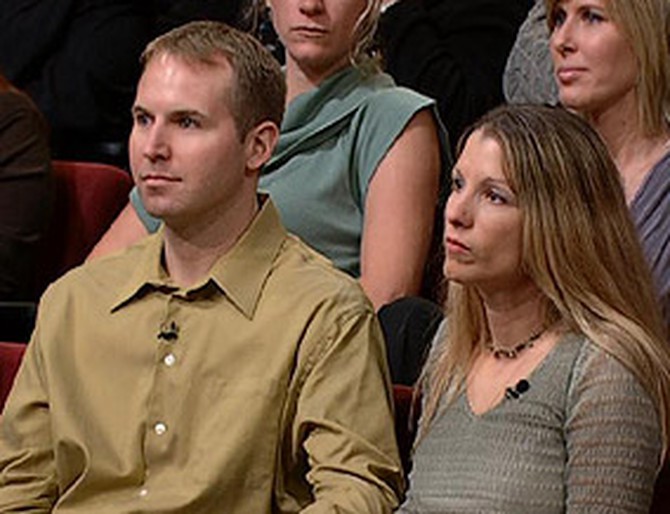
Tracey and Jamie also desperately want to be parents. For two years they say they've tried to conceive the old-fashioned way, but they haven't had any luck. Now, they're trying in vitro fertilization treatments.
To afford the costly procedure, Tracey says they had to take out a home equity loan on their condo. Their first in vitro treatment takes place in two weeks, and Jamie's ready to do his part. He even took an injection class so he can give Tracey her fertility shots.
"[The doctors] told me I could do it myself, but I'm going to need him to do it," Tracey says. "He's gotten me through this entire process, and I just know that he'll be able to get me through those injections."
Since Tracey is just 34 years old, she says her doctors are optimistic about her chances. "All my doctors have told me, 'Oh, you're still young and you're healthy, you're an athlete, you'll have no problems," she says.
Alexis says being healthy has nothing to do with being able to get pregnant. She advises all women to get fertility tests...even if they're still in their 20s. "Check your FSH [follicle stimulating hormone] level and look at your ovaries," Alexis says. "See how many eggs you produce, and then you know what stage you're at. You know if you should think about it now, or if you can wait five years."
To afford the costly procedure, Tracey says they had to take out a home equity loan on their condo. Their first in vitro treatment takes place in two weeks, and Jamie's ready to do his part. He even took an injection class so he can give Tracey her fertility shots.
"[The doctors] told me I could do it myself, but I'm going to need him to do it," Tracey says. "He's gotten me through this entire process, and I just know that he'll be able to get me through those injections."
Since Tracey is just 34 years old, she says her doctors are optimistic about her chances. "All my doctors have told me, 'Oh, you're still young and you're healthy, you're an athlete, you'll have no problems," she says.
Alexis says being healthy has nothing to do with being able to get pregnant. She advises all women to get fertility tests...even if they're still in their 20s. "Check your FSH [follicle stimulating hormone] level and look at your ovaries," Alexis says. "See how many eggs you produce, and then you know what stage you're at. You know if you should think about it now, or if you can wait five years."
Published 01/01/2006

